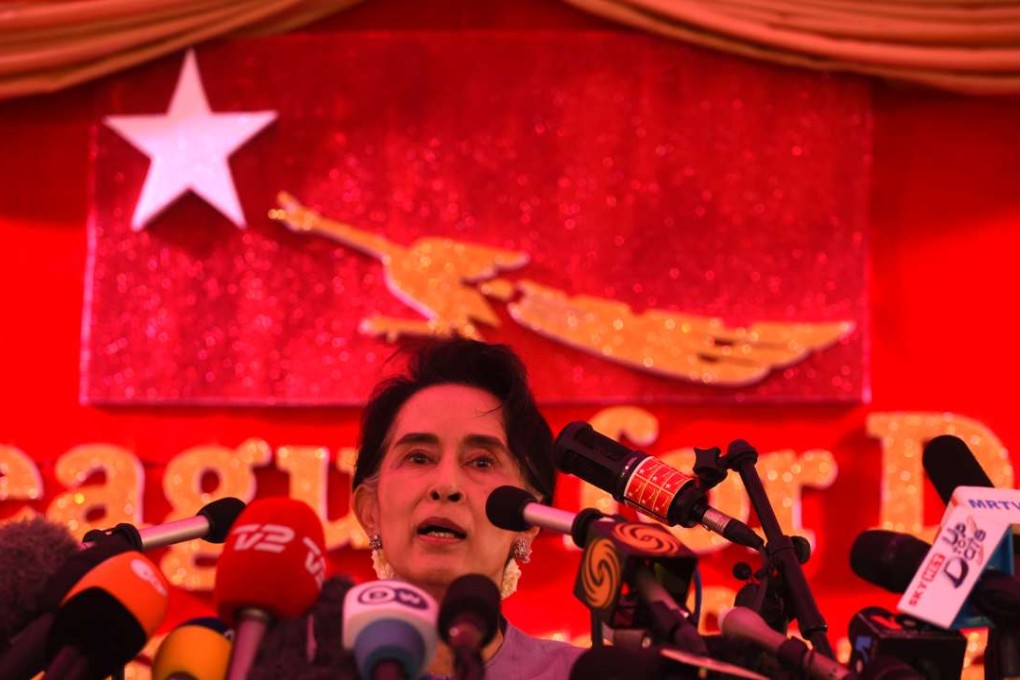One year on in Myanmar, is Suu Kyi’s halo slipping?
Voters danced in the streets when the NLD scored its landslide victory one year ago. Now all many can see is more of the same

A year ago, people were dancing in the streets of Myanmar’s main city, Yangon. The votes from the November 8 election were being counted, and it was clear the National League for Democracy (NLD) was going to score a landslide victory. Times had changed since 1990, when the NLD also won by a landslide but the result was ignored by the ruling military. This time, foreign election observers were present and the country was reaching out to the outside – especially Western – world for recognition, thus leaving no room for such shenanigans.

Everyone knew that the NLD’s leader, Nobel Peace Prize laureate Aung San Suu Kyi, would not be the new president because the constitution – drafted under military supervision and promulgated after a fraudulent referendum in 2008 – barred anyone married to a foreigner, or whose children were not Myanmese citizens, from becoming head of state. (Suu Kyi’s late husband Michael Aris was British and their two sons are British and American citizens).
But a new post, that of state councillor, was created for her, making her the de facto head of the new government that eventually took over in April this year.

Today, disappointments have set in, especially among the country’s many ethnic minorities who account for perhaps as much as 30-40 per cent of the population. They had voted for the NLD too, but not necessarily because they supported that party – or even Suu Kyi. For them, as for the majority Burmese, the 2015 election was more of a referendum than a national poll.